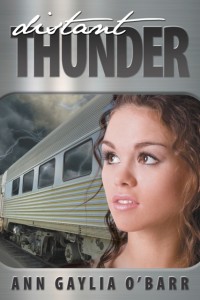How many American bodies had he sent home in the course of his career? Neal Hudson had not kept count, but he figured it must be close to fifty.
 So begins my novel, Distant Thunder, the story of Neal Hudson, a U.S. Foreign Service professional. Distant Thunder, like several of my books, deals with a Foreign Service officer, the official name for a U.S. diplomat. Most Americans have no idea our government has a Foreign Service. Thus, I often create a scene in my novels in which the officer has to explain what he or she does.
So begins my novel, Distant Thunder, the story of Neal Hudson, a U.S. Foreign Service professional. Distant Thunder, like several of my books, deals with a Foreign Service officer, the official name for a U.S. diplomat. Most Americans have no idea our government has a Foreign Service. Thus, I often create a scene in my novels in which the officer has to explain what he or she does.
On rare visits to the States, strangers he’d meet in a hotel or a car rental would ask what he did for a living. He’d fumble around trying to explain. “I’m a consular officer.”
Raised eyebrows. “Oh?”
“A Foreign Service officer.”
“In the military, you mean?”
No, Neal says, and explains about overseas Americans and how Foreign Service officers notify loved ones when an American citizen dies overseas. They see that bodies are sent home. They visit imprisoned Americans and American children living with non-American parents. They perform more mundane tasks, acting as a notary in foreign countries and renewing passports.
Neal serves as a consular officer. Other specialities include political, economic, administrative, and security, to name a few.
Like professionals everywhere—firefighters, police officers, the military, nurses—Foreign Service officers are proud of their service and can never fully explain it to the uninitiated. The interweaving of tragedy, comedy, and an occasional happy ending with a touch of the exotic provides infinite plots for story telling.


 In Distant Thunder, Ms. O’Barr has melded a personal journey of searching and restoration with a candid, point-blank look at American culture and faith. Okay, that’s been done before. A lot. But what makes this book unique is the author’s perspective on America through the eyes of Americans who have spent a considerable portion of their adult lives outside of America. . . .
In Distant Thunder, Ms. O’Barr has melded a personal journey of searching and restoration with a candid, point-blank look at American culture and faith. Okay, that’s been done before. A lot. But what makes this book unique is the author’s perspective on America through the eyes of Americans who have spent a considerable portion of their adult lives outside of America. . . .